Holiday Shopping and the Dark Market Parallel

As Black Friday and Cyber Monday deals continue throughout the holiday season, millions of consumers will log on to snag the best offers of the year. But they aren’t the only ones on the hunt for seasonal discounts. Cybercriminals, too, flock to dark markets, browsing for their version of “steals” on an assortment of unconventional goods and services. In a digital underground that mirrors traditional e-commerce in many ways, these markets cater to buyers with specific — and often illegal needs.
The following explores parallels with dark markets and conventional online shopping including operations, payments, and even advertising.
Dark Market Goods and "Deals"
While Amazon, Target, Home Depot and other legitimate online storefronts offer everything from discounted electronics, clothes, and home goods, dark markets have more alternative inventories.
Need fake passports? Maybe someone else’s credit card? Narcotics? Or perhaps something more unconventional like a rocket launcher or anti-tank weapons to arm your small private army. Basically, whatever you want (legal or illegal) you can most likely find it on the dark market – if you can access one of course.
Accessing the dark web presents challenges for the average individual. Unlike the surface web, it requires a specialized browser called Tor Browser, to navigate its concealed networks. Even with Tor, locating illicit marketplaces is not so straightforward; these pages often operate under constantly changing addresses to evade detection. Moreover, gaining entry into these hidden markets necessitates establishing trust within tightly knit cybercriminal communities. This typically involves vetting procedures, referrals (from other criminals), or participation in forums to demonstrate credibility.
Bitdefender’s cybercrime unit has covert access to many of these markets and has infiltrated several cybercriminal groups to help global law enforcement disrupt illegal operations. This access also gives the public unique insights into the underworld subculture to help better protect their data, finances, and identity.
Trolling through the several marketplaces here’s a glimpse of what was found:
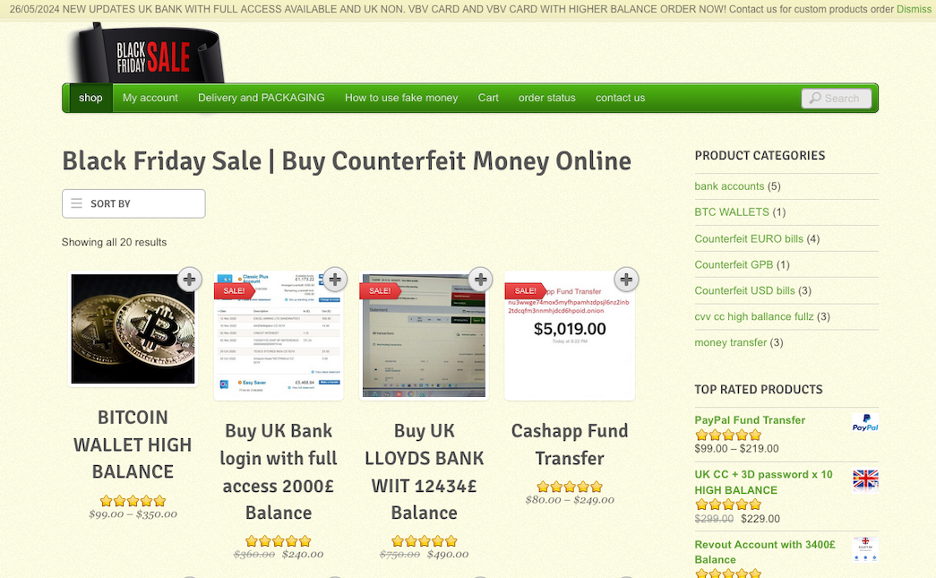
Fake IDs with Selfies for Know Your Customer Bypass – $25 to $150
For as low as $25, dark markets offer fake IDs complete with matching selfies, perfect for slipping past bank and fintech verification. From Canada to the EU, these IDs come tailor-made to fool automated systems.
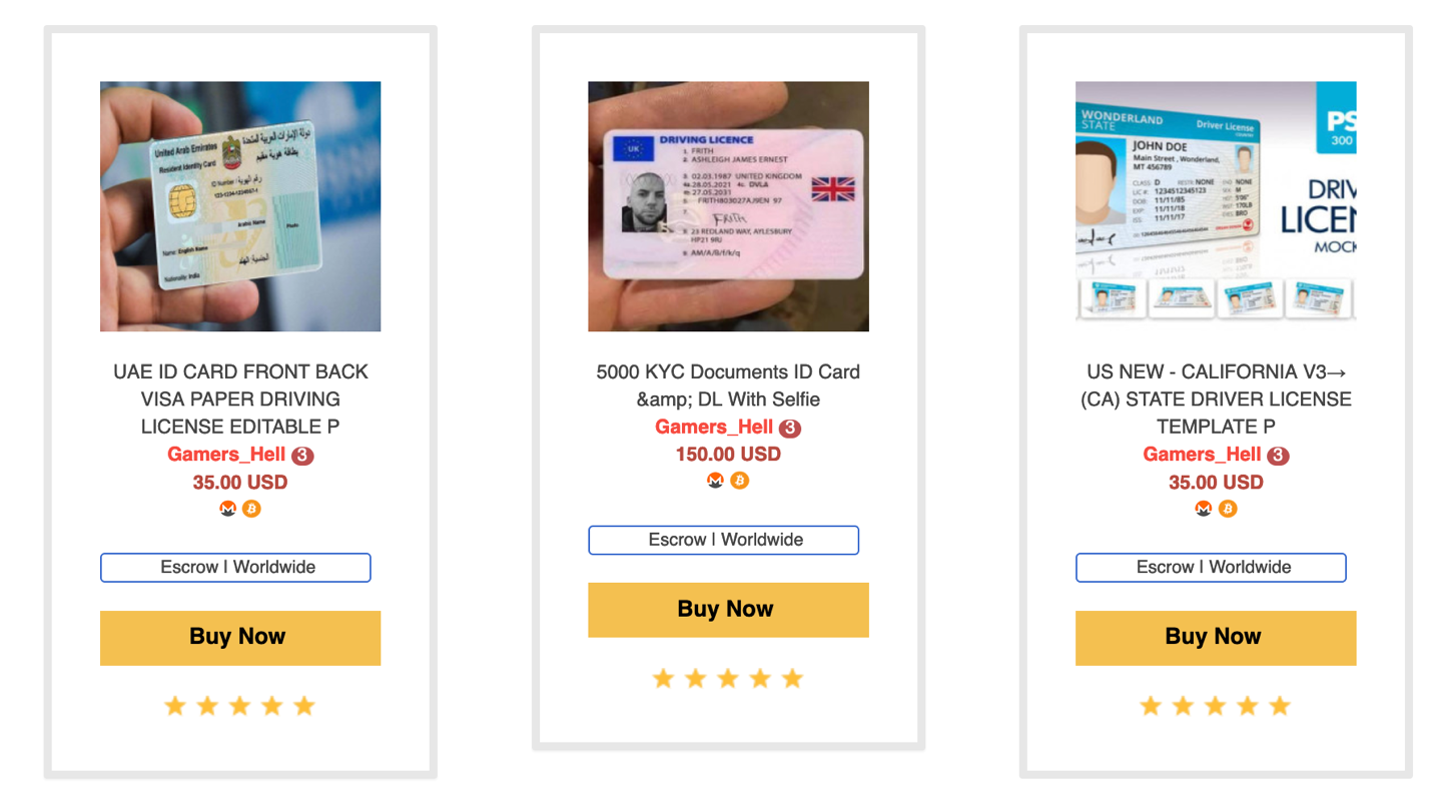
Counterfeit Money – $95 for €1,000 in Fake Bills
With a 10% exchange rate, counterfeit bills (many well produced and hard to spot with the naked eye) can be used for everyday purchases at retail or grocery stores.
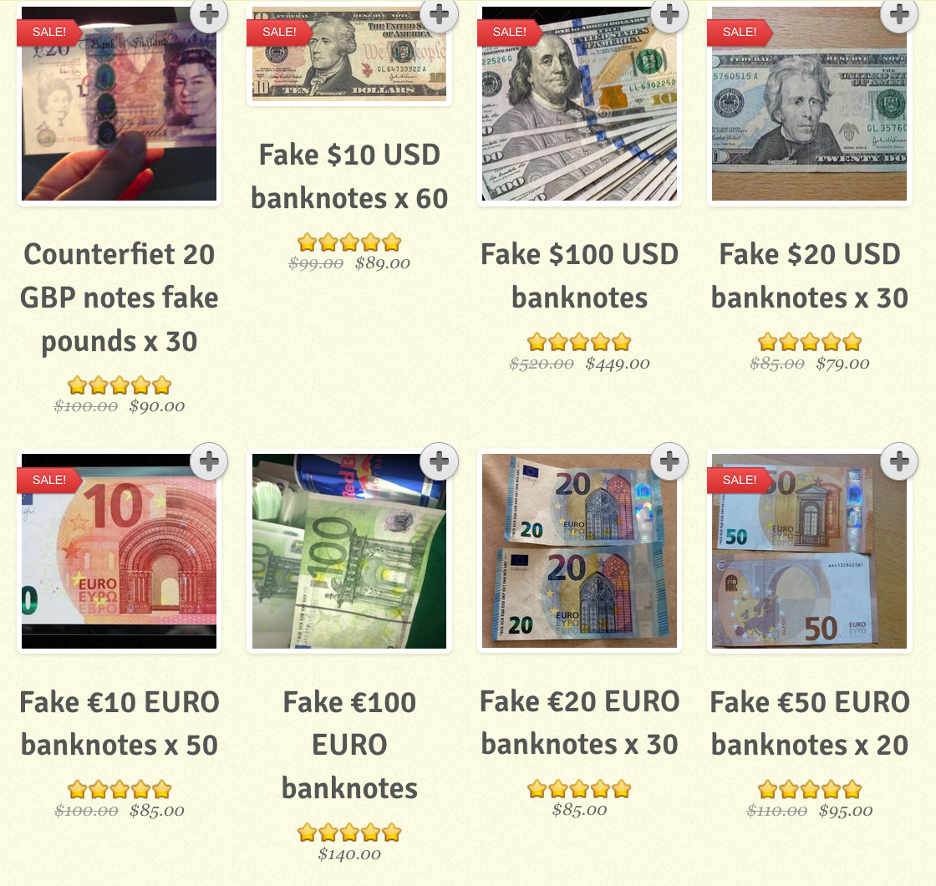
Exotic Animal Parts – $5,000 for a Rhino Horn
Illegal poaching is big business in many parts of the world, threatening both species and habitats. The dark web offers access to rare animal parts, including rhino horns, elephant tusks, tiger pelts and more.
Social Media Followers and Likes – $4 to $400
No time to build a social media following for yourself or your business? For a small price, you can purchase 25,000 Twitter followers or a batch of TikTok likes. Some sellers even offer a “lifetime warranty” on these ghost followers.
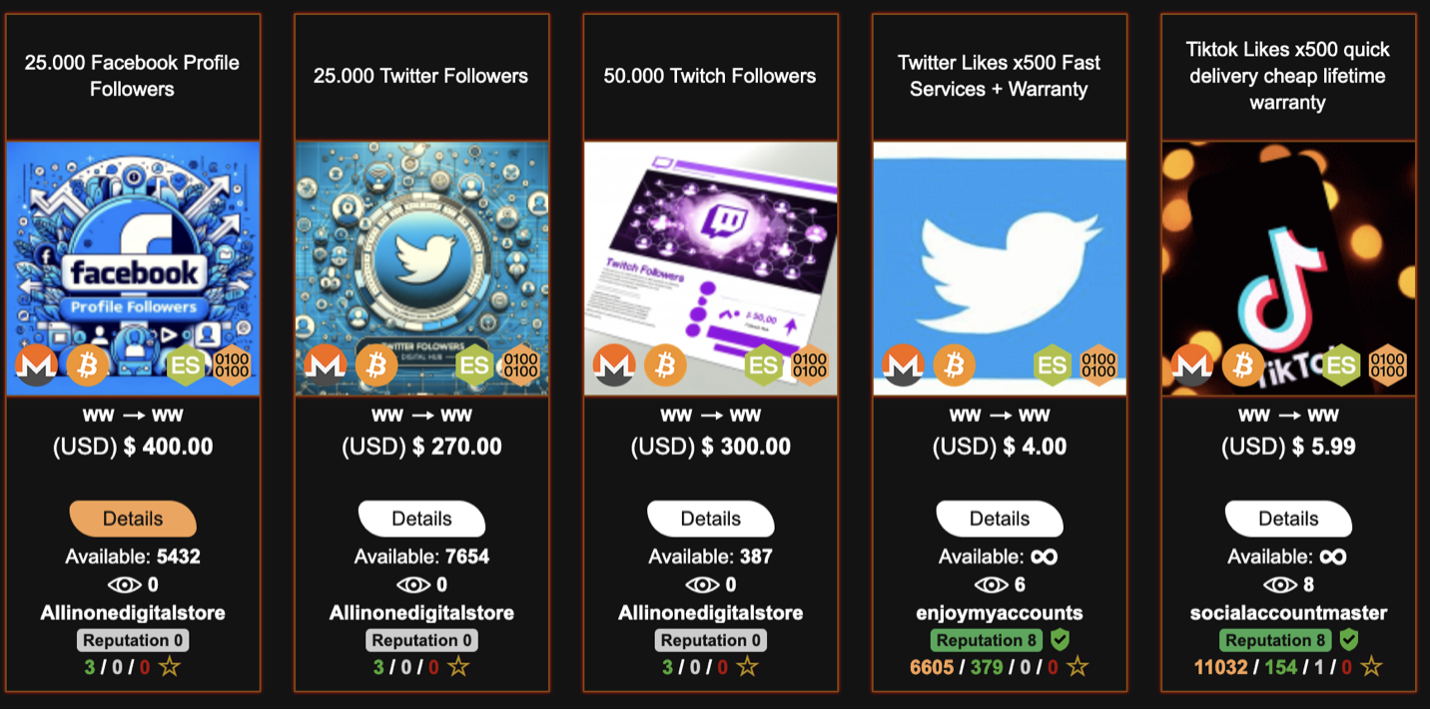
Stolen Streaming Accounts – $5 to $15
Why pay for Netflix or Amazon Prime when you can piggyback off someone else’s account? Dark markets offer access to various streaming platforms for a fraction of the subscription cost. Sellers even offer bulk deals and bundles just like the real marketplace.
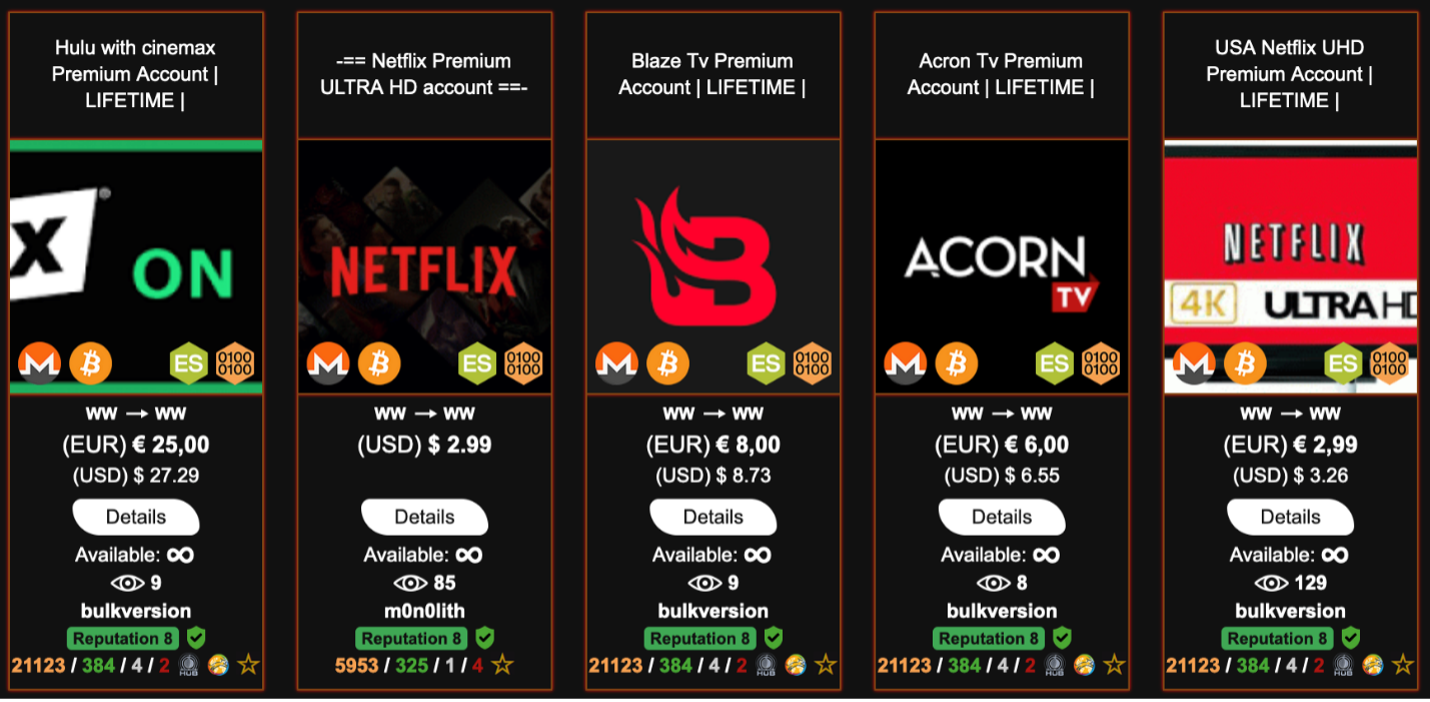
Explosives and Rocket Launchers – $500 to $35,000
Packages of assorted explosives and powerful weapons are disturbingly common on dark markets – supplying terrorist and paramilitary organizations. Everything is available from C4, dynamite and hand grenades to Javelin FGM-148 rocket launcher, powerful enough to take out most tanks and aircraft.
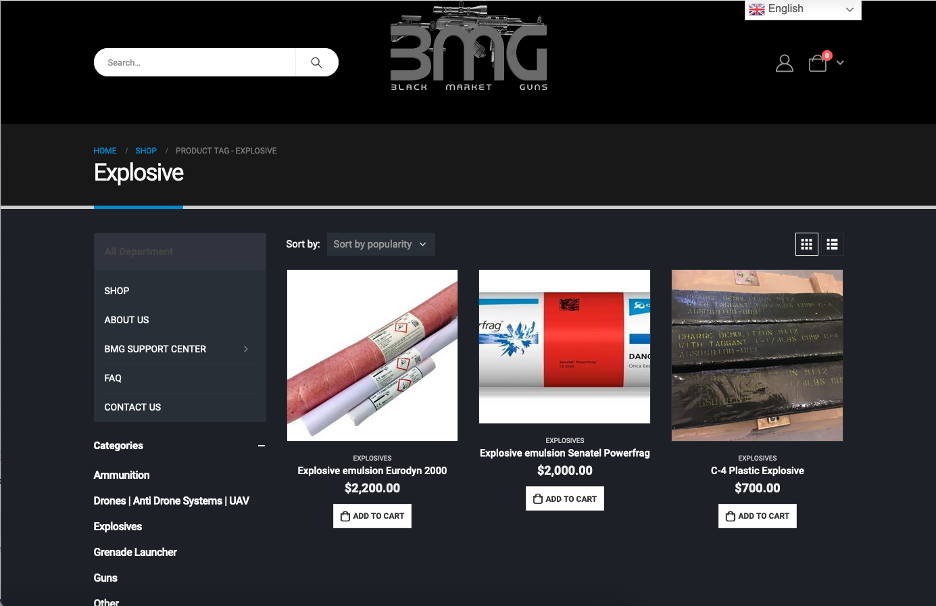
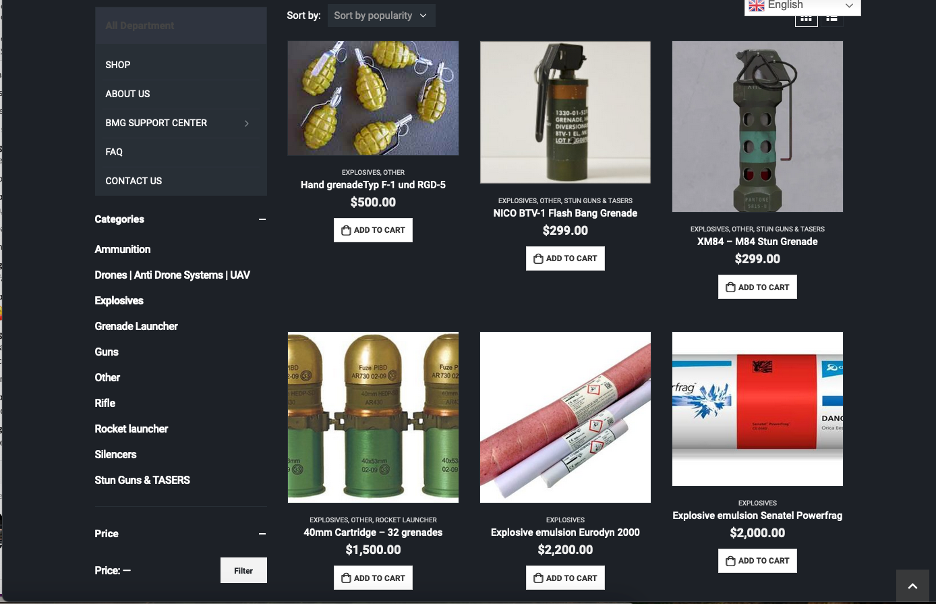
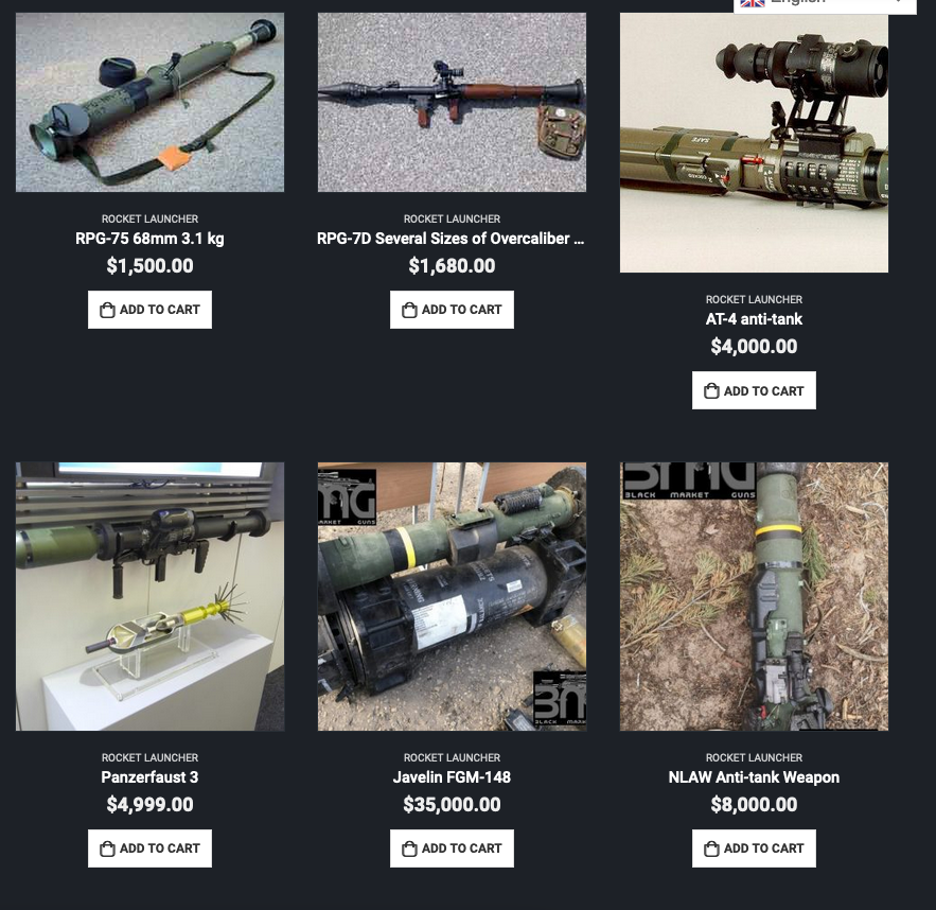
Bulk Meth and Afghan Heroin – $34,000 Per Kilo
For cartels and drug dealers, dark markets offer an easy path for purchasing narcotics of any kind often with wholesale rates.
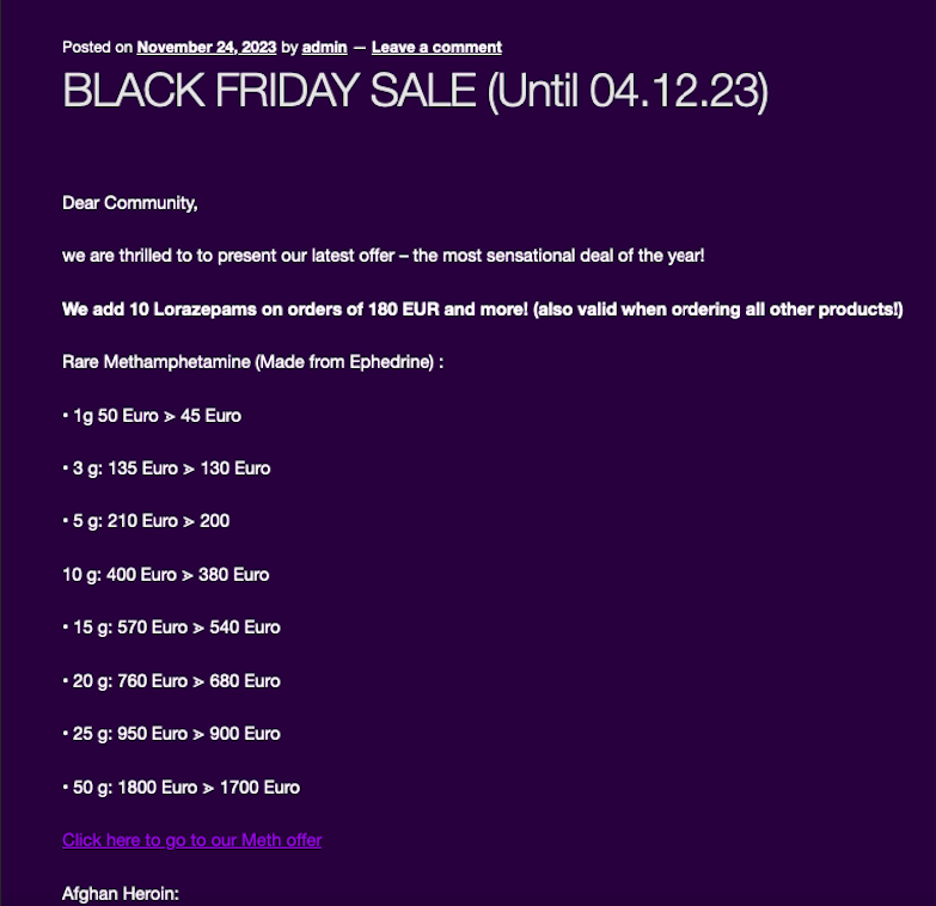
Unraveling Dark Market Operations
The 5-Star Experience
For legitimate storefronts, customer reviews and reputation are everything. Surprisingly, the same holds true in dark markets. There’s a whole underground culture of ratings, comment sections, and reviews. Ironically, these ratings help buyers choose “trustworthy” and reliable criminals knowing, that if they send money, they will most likely get the goods in return. A sellers’ reputation hinges on customer experience and is vital to sustaining their illegal operations.
Payment Systems
Payment options such credit cards, PayPal, Apple Pay, gift cards, points, and similar platforms are today’s standards for online shopping.
On dark markets however, the perceived anonymity of cryptocurrency transactions make them the preferred choice and why they are used for more traditional cybercrime such as ransomware attacks. Bitcoin and Monero are the two most popular choices. Again, this is where trust comes in because if your transaction doesn’t go through, it is unlikely there will be a number for customer support to call.
For consumers, Black Friday and Cyber Monday sales bring excitement, deals, and a sense of accomplishment. Although it may appear enticing, it is wise to stay clear of dark markets and stick to conventional shopping. Curiosity (especially when it comes to cybercrime) is extremely risky and getting caught once (depending on what was purchased) could result in serious jail time. Remember, law enforcement have infiltrated many of these sites and are constantly monitoring.
tags
Author

The meaning of Bitdefender’s mascot, the Dacian Draco, a symbol that depicts a mythical animal with a wolf’s head and a dragon’s body, is “to watch” and to “guard with a sharp eye.”
View all postsRight now Top posts
How to Protect Your WhatsApp from Hackers and Scammers – 8 Key Settings and Best Practices
April 03, 2025
Outpacing Cyberthreats: Bitdefender Together with Scuderia Ferrari HP in 2025
March 12, 2025
Streamjacking Scams On YouTube Leverage CS2 Pro Player Championships to Defraud Gamers
February 20, 2025
How to Identify and Protect Yourself from Gaming Laptop Scams
February 11, 2025
FOLLOW US ON SOCIAL MEDIA
You might also like
Bookmarks







